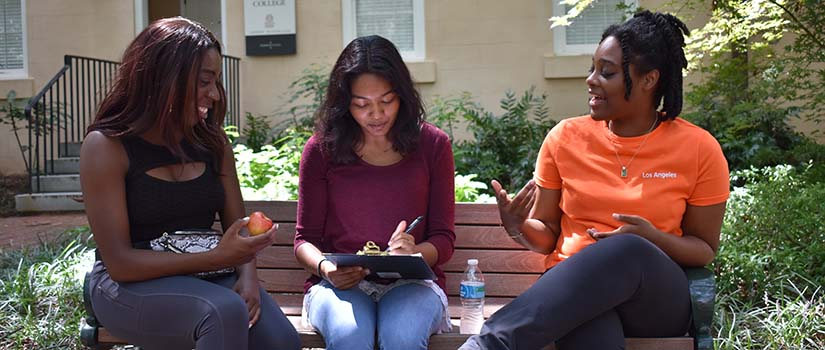Getting physical for a healthier South Carolina
Dr. Allison Sweeney, an assistant professor in the College of Nursing, is leading a clinical trial to promote daily exercise and greater cardiovascular health among African American women. Funded by a five-year $3.7 million grant from the National Institutes of Health, the Together Everyone Achieves More Physical Activity (TEAM-PA) project is partnering with community organizations to make physical activity programs social, accessible and easy for people to participate.
What are your goals for the trial and its impact?
We are focusing on African American women because in South Carolina they have some of the highest rates of cardiovascular disease, diabetes and obesity, all of which can be prevented (or some of the symptoms can be reduced) by regular physical activity. At a national level, despite having high rates of chronic disease, racial minorities are underrepresented in clinical trials. Historically, researchers have not done a good job at tailoring programs to meet the needs, interests and values of minority communities. My hope is that by partnering with community organizations and integrating core values related to social support, this grant will help to identify best practices for reducing barriers to participation, facilitate positive changes in health and well-being and promote greater health equity in South Carolina.
Who is participating in TEAM-PA and how does it work?
The program is implemented in small groups, 10-15 people, recruited in collaboration
with community partners. We want to help women who are currently inactive (getting
less than an hour of exercise a week) learn how to make physical activity part of
their everyday life in a way that is enjoyable and sustainable.
We are comparing two types of group programs: one that focuses on group competition
and social connectedness and one that focuses on self-efficacy and one-on-one support
from a group facilitator. Both programs involve weekly group sessions for 12 weeks
and participants receive a complementary FitBit fitness tracker, which we use for
weekly goal-setting. We launched our first groups of participants in September and
are excited to continue to offer these programs over the next few years.
Who are your community partners and why is it important to work with them?
We’re working with Parks and Recreation in Columbia, the Boys and Girls Club of the Midlands, Richland County Recreation Commission and the city of Sumter HOPE Centers. It’s important to make these programs accessible, and they all have locations where we can run the 12-week group sessions. We try to target community sites that people are already visiting on a regular basis or live nearby. For example, one of our programs is at a Boys and Girls Club after-school site at a local elementary school. We've been able to recruit parents whose children are in the program. They're already at the school to pick up their kids, so they don’t have to travel somewhere extra. We want to make it easy for people to participate and integrate it into their daily routines.
What are the next steps?
The grant is for five years, so as one group completes the 12-week program, we recruit another group. We hope to see a positive change in physical activity (as well as other outcomes like blood pressure and motivation) from the beginning to the end of the program. We also will follow up with participants six months later to see if they've been able to maintain changes. We're not able to look at the primary outcome until the trial is complete, but along the way, we can track things like attendance and retention and monitor the program to make sure we're hitting our benchmarks for the sessions.
